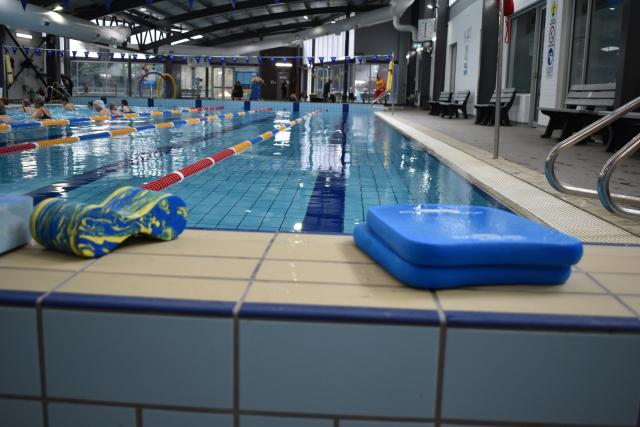
By Callum Ludwig
Almost half (47 per cent) of children missed out on swimming lessons and opportunities to develop water safety skills due to the Covid pandemic, a new survey conducted by the Royal Children’s Hospital (RCH) has revealed.
The National Child Health Poll, titled Water safety warning: Australian kids at risk, raises large concerns about the safety of children around water heading into this summer.
Yarra Ranges Area Manager for Belgravia Leisure Darren Allen, which owns and operates pools such as the Yarra Centre, Monbulk Aquatic Centre, Kilsyth Centenary Pool and the Lilydale, Healesville and Belgrave outdoor pools, said swimming lessons have never been more important.
“We’ve missed millions of swimming lessons since the start of the pandemic, an extraordinary amount of opportunities for kids, as well as adults to learn the life skill that is swimming. People are aware that they’ve lost confidence in or entirely lost that skill over this time, ” he said.
“Thankfully in the Yarra Ranges, we have seen participation rates return really strong since we have really valued it. We have had our lessons booked out since September in the most popular timeslots for our classes.”
Among the 35 per cent of children who missed swimming lessons due to the pandemic, half (49 per cent) have not yet caught up on their swimming skills, with 45 per cent of primary school aged children, 60 per cent of pre-schoolers and 58 per cent of toddlers not having had catch-up lessons.
Mr Allen said the Yarra Ranges is really passionate about swimming, particularly in our pools.
“The damage that was sustained to the Monbulk Aquatic Centre during the storm event of June last year meant that the pool was closed for 15 months and it had a really huge impact on the community, but when we reopened on 1 September, we saw extraordinary rates of the local community reconnecting with the facility,” he said.
“We just really encourage parents in particular to be really engaged with their children’s swimming. The best thing they can do is participate and the second best thing they can do is make sure that they supervise their children whilst they’re in the water. If children are under five, they’ve got to be within arm’s reach and if they are under 10, they still have to be actively supervised.”
Half of the 2036 parents surveyed (49 per cent) were not aware that young children should always be within arm’s reach of an adult in the water and 44 per cent were not aware that drowning is often silent.
Paediatrician and Poll Director Dr Anthea Rhodes said the findings show there is a critical need to improve water safety knowledge among Australian parents.
“With drowning the leading cause of death in children aged less than 15 years in Australia, water safety and swimming skills are critically important. Our report found that while most Australian parents believe that children are never too young to start learning about water safety, there were some concerning gaps in parents’ knowledge about drowning risks,” she said.
“Half of the parents surveyed (49 per cent) falsely believe it takes more than 20 seconds for a child to drown. There were also misconceptions around flotation devices with a third of parents mistakenly believing that a lilo or inflated toy will prevent a child from drowning.”
According to the polling, one in five pre-schoolers (21 per cent) have ‘no swimming skills at all’, and almost a third of primary school-aged children have either ‘no swimming skills at all’ (4 per cent) or ‘beginner skills only’ (27 per cent) and one in 10 teenagers have ‘no swimming skills at all’ (2 per cent) or only beginner skills (7 per cent).
Dr Rhodes said they had found that one in six Australian children have never had a swimming lesson.
“The leading barrier was cost, followed by convenience and family logistics. Only half of children have accessed catch-up swimming lessons following the pandemic, leaving many children vulnerable and at risk of water-related accident and injury,” she said.
“As we enter summer, many families will be planning to have fun around the water. Supervision is the single most important protective action parents and carers can take to keep their children safe. We encourage all parents to remain vigilant and stay close to their children when around water this summer, for young children that means staying within arm’s reach.”






